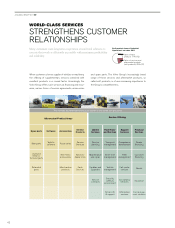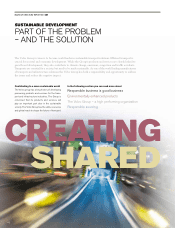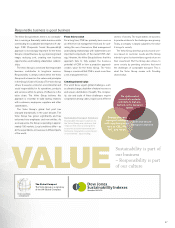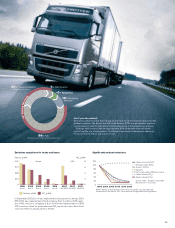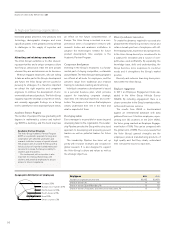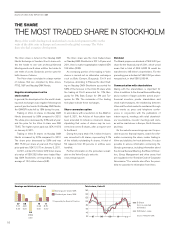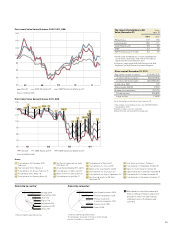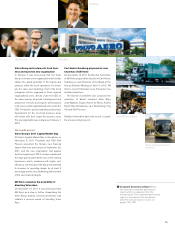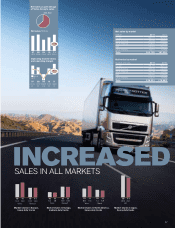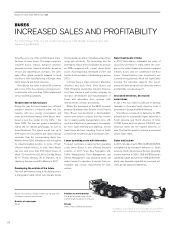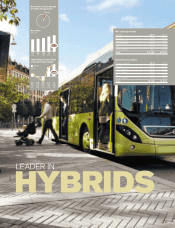Volvo 2011 Annual Report Download - page 55
Download and view the complete annual report
Please find page 55 of the 2011 Volvo annual report below. You can navigate through the pages in the report by either clicking on the pages listed below, or by using the keyword search tool below to find specific information within the annual report.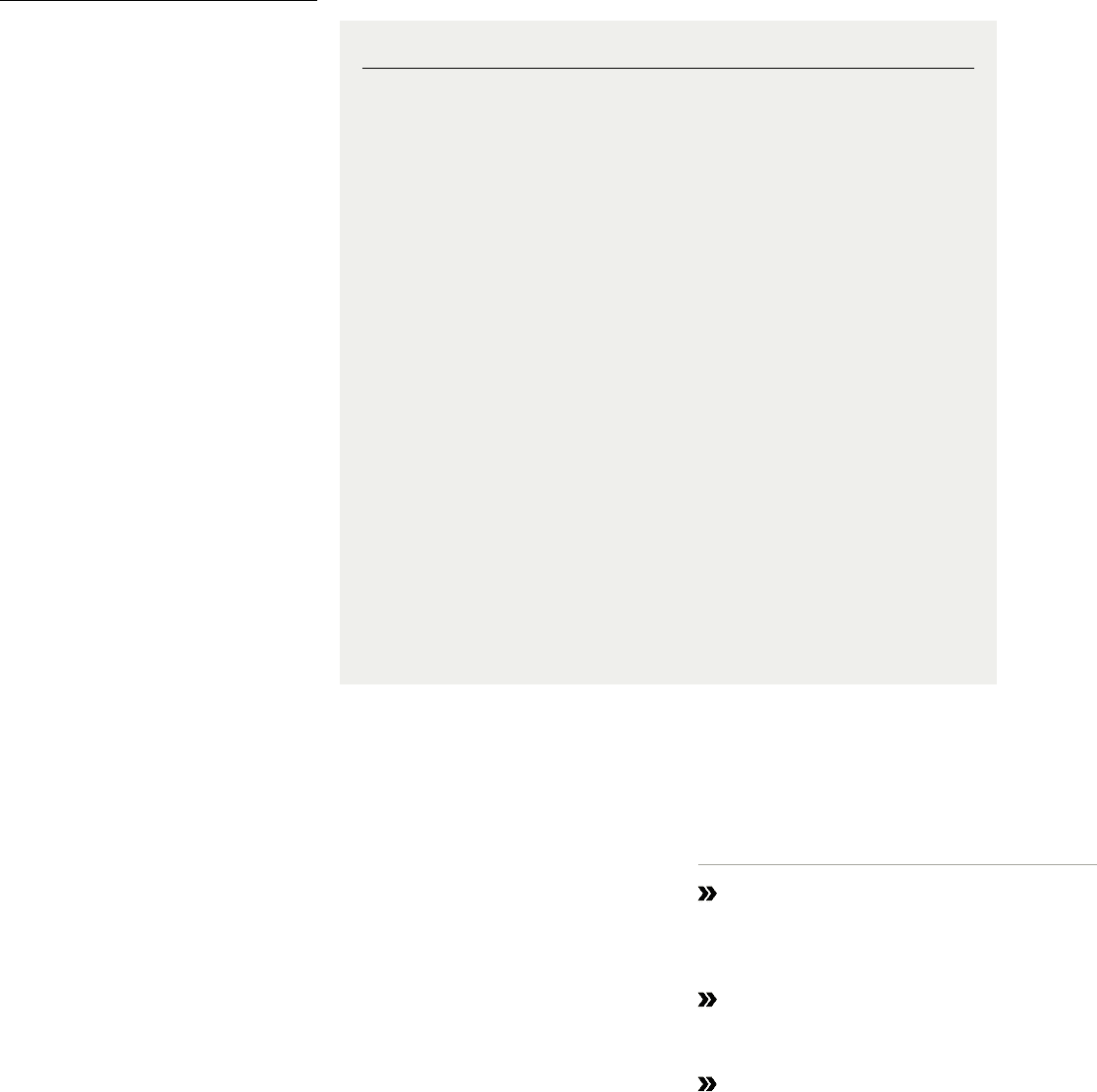
Responsible supply chain management is about
managing risk, promoting responsible behaviour
and building long-term relationships with suppli-
ers to improve social, environmental and busi-
ness ethics in the supply chain. Ensuring good
standards in the supply chain is important to the
Volvo Group and its stakeholders. The Group
wants to ensure that unethical values are not
built into the Group’s products and services.
Since 1996 the Volvo Group has gradually
increased requirements for suppliers regarding
environmental, business ethics and social respon-
sibility aspects.
The requirements placed on suppliers are
based on the principles contained in the Volvo
Group’s Code of Conduct and international norms
of behaviour.
Sourcing and risk assessments
In 2011, more than 39,000 suppliers delivered
products and services to the Volvo Group. Approx-
imately 6,000 are suppliers of direct material
used in automotive products. 8% of these suppli-
ers are located in countries assessed as ‘high risk’
identified in the Volvo Group’s CSR country risk
model. The risk assessments are based on analy-
ses conducted by internationally recognized insti-
tutions and include factors such as human rights,
labour standards and incidence of corruption. The
Volvo Group has chosen to apply the same require-
ments and the same process on all suppliers.
Results from the assessments in 2011
In 2011, 63% of Volvo Group purchasing spend
derived from suppliers of direct materials that
had completed the CSR assessment during 2010
and 2011. 73% of the suppliers that completed
the assessment passed. Almost exclusively, the
main reason for failing to comply with the
assessment is a lack of adequate systems to
pass on the requirements to their suppliers.
Suppliers that do not pass are asked to draw up
an action plan.
The assessment was completed by 83% of
suppliers from countries considered to be high
risk from a CSR-perspective.
In 2012, the Group will continue to focus on
assessing suppliers in identified high- and medium
risk countries from a CSR perspective and to work
with the non-approved suppliers to ensure that
the Group’s requirements are met.
Responsible sourcing
The environmental effort is and has long been
one of the cornerstones in the Group’s work. The
joint environmental policy is one of the most
important documents for control. The policy is the
foundation of the Group’s environmental manage-
ment system, strategies and targets, audits and
measures.
Already in 1995, the first environmental man-
agement system was certified. At the end of 2011,
99% of the employees in production units were
working in accordance with the certified environ-
mental management system, primarily ISO
14001:2008. At each production unit, there is an
environmental coordinator.
The Group’s environmental goals are used to
control, develop and monitor the environmental
effort. Strategies to achieve the goals are included
in the business plan. Since 2004, the Volvo Group
has put an extra strong focus on energy reduction
in its own production process. Energy consumption
has since decreased by 46% per produced unit.
The energy-saving goal for 2010–2012 is
divided into two parts:
• Continue the work with investigating the pos-
sibility of making the Group’s facilities carbon
neutral.
• Standby loss, i.e. energy consumption during
non-production hours, must decrease by 50%
and an additional 15% energy-saving per
produced unit by 2012, compared with 2008.
Production
Focusing on energy-savings measures is good for
both the environment and the Group’s financial
results. A couple of years ago, when the Volvo
Group launched the world’s first carbon-neutral
plant, the primary reason was to reduce the envi-
ronmental load, but it soon became quite clear
that it was also a solid financial investment, which
will generate significant cost savings in the long
term.
All production plants must comply with the
common minimum requirements pertaining to
chemicals, energy consumption, emissions to air
and water, waste management, environmental
organization and improvement work. Since 1989,
environmental audits have been conducted to
ensure compliance with the environmental policy
and in the event of acquisitions; a review is con-
ducted of the company and properties to observe
environmental factors and risks.
In 2011, 17 facilities in Sweden required permits.
All have the necessary environmental permits and
no permits needs to be renewed in 2012. The
existence of contaminated land in our properties
is documented annually. During 2011, no after-
treatment of contaminated land was in progress
on Volvo Group property in Sweden. During 2011,
no spills were reported, no major environmental
incidents occurred and no environmental disputes
are ongoing.
Environmental data report
Every year, the Volvo Group publishes
a detailed Environmental data report.
Read more under Responsibility at
www.volvogroup.com
Volvo Group Sustainability Report
will be available on www.volvogroup.com
by the end of March.
Volvo Group’s environmental performance
For information on the Volvo Group’s environ-
mental performance see the Eleven-year sum-
mary.
51



